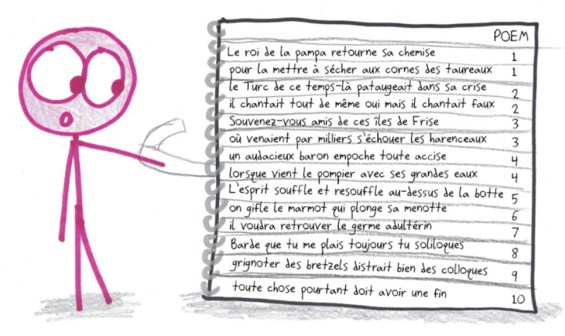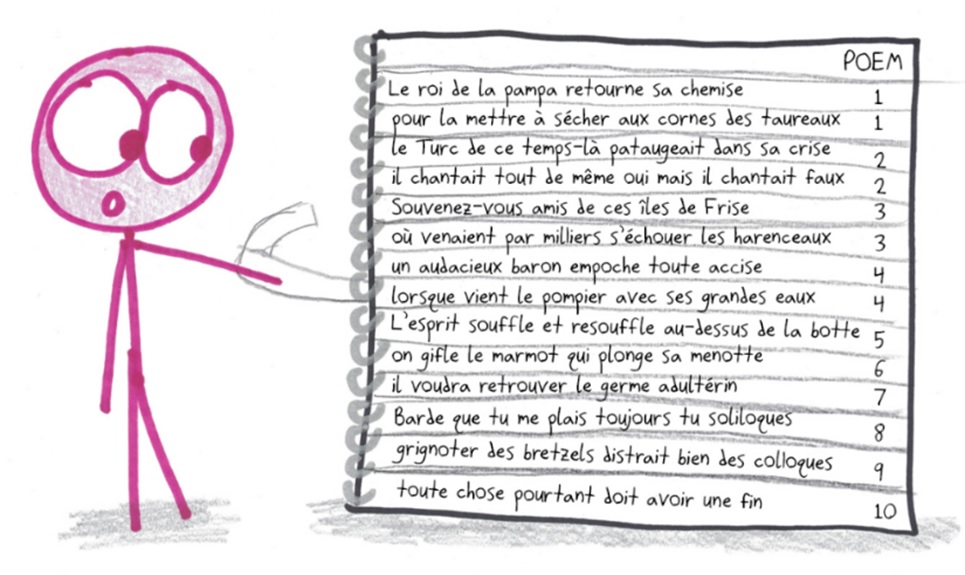It’s the 60th anniversary of one of my favorite books.
Or non-books, as the case may be.
In 1961, Raymond Queneau published the largest volume of poetry in world history, consisting of 100,000,000,000,000 sonnets. In a single stroke, he surpassed the combined sonnet output of all other humans in history. Reading his book at a rate of one poem per minute would consume nearly 200 million years. You’d be the last human left (and certainly the last poetry reader).
This magnum opus, I should mention, is ten pages long.
How did Queneau do it? Simple: he composed ten sonnets, each fourteen lines long, and each with the same rhyming sounds. Then, he printed each page of the book as fourteen separate strips. Thus, you can flip your way to any combination of lines.
With ten choices for the first line, ten more for the second, and so on, you wind up with 1014 possibilities.

You can try it out at this handy interactive site (which includes an English translation).
I don’t really consider A Hundred Thousand Billion Poems a work of poetry. Rather, Queneau created a space of combinations, and furnished rules for navigating that space. It’s a work of combinatorics, that just so happens to produce poems as a byproduct.
Queneau isn’t the poet here; you are.
Published






![Erratum for “An inverse theorem for the Gowers U^s+1[N]-norm”](https://azmath.info/wp-content/uploads/2024/07/2211-erratum-for-an-inverse-theorem-for-the-gowers-us1n-norm-150x150.jpg)

